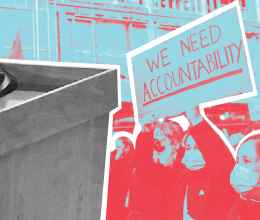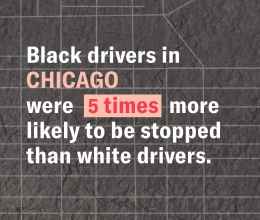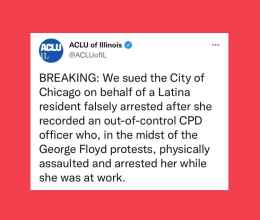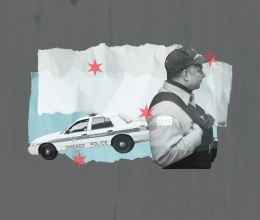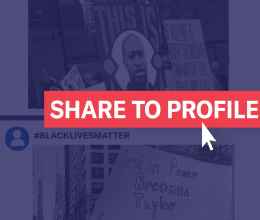
Our Legislative Counsel, Khadine Bennett, testified before the Illinois Senate Criminal Law Committee today on the subject of wrongful convictions. Read her testimony:
Good morning. My name is Khadine Bennett, and I’m a staff attorney and legislative counsel with the American Civil Liberties Union of Illinois. I would like to begin by thanking you, on behalf of our 20,000 members and supporters throughout the state, for giving your time and attention to the important issue of wrongful convictions. While the ACLU of Illinois supports all of the recommendations highlighted in the BGA Wrongful Convictions Report, I’m here today to speak briefly on the issue of transparency in police disciplinary procedures, specifically as it relates to the Chicago Police Board.
For decades, the ACLU of Illinois has supported improvements in police disciplinary procedures. A badge and a gun confer vast power, and while most police officers execute their duties in a lawful and professional manner, we know, and as we have heard today, that some officers, unfortunately, abuse that power. When that abuse happens, the availability of an effective and transparent disciplinary process is vital.
The Chicago Police Board plays a critical role in the existence of a transparent disciplinary process. The Police Board is tasked with reviewing the Police Superintendant’s recommendations of discipline in all cases resulting in suspension of a year or more or discharge, and, at a disciplined officer’s request, suspension cases of a month to a year. After an administrative officer conducts an evidentiary hearing, which is like a mini-trial, and presents the Police Board with a recommendation and a video tape of the hearing, the Police Board reviews the material and can decide to uphold or reduce the Superintendant’s recommendation for discipline.
Until recently, the board was not required to produce written decisions to explain its rulings. For example, when a police officer, William Cozzi, was caught on video beating a man confined to a wheelchair, the Superintendent recommended termination. The police board, instead, reduced the discipline to a two-year suspension in a decision that relied on boiler plate language as opposed to a meaningful explanation or rationale for their decision.
A number of organizations, including Citizen’s Alert, the Cook County Public Defender, and the Chicago Justice Project, shared the ACLU’s significant concerns about the Police Board’s continued failure to provide complete and timely information to the public about its disciplinary process. As a result, our organizations worked together as a part of the “Chicago Coalition for Police Accountability” to push for increased Police Board transparency. This summer, the Chicago City Council passed an ordinance that requires the Police Board to post, on its website, the votes of the members of the Police Board on whether to support or reject the Superintendent’s discipline recommendation, and most important, requires the Police Board, and any dissenting members, to compose and disseminate “an explanation of the reasons” for their findings and decisions. Once posted, the information will be available on the website for a period of at least two years.
The increased transparency of the disciplinary process that comes from the on-line availability of the Police Board member votes, and explanations of the reasons for their decisions, benefits the body politic and creates greater public trust in the legitimacy of the process. And, it is done with minimal financial burden to the board.
Thank you for your time.
Read the related article from the Chicago Tribune: Open up, in the name of the law.
